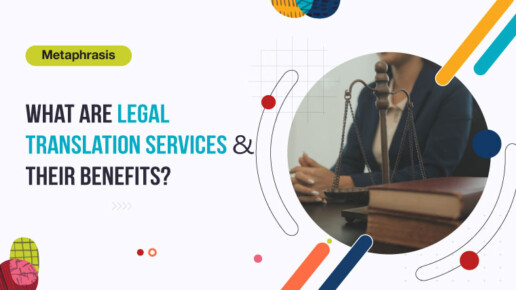What Are Legal Translation Services and Their Benefits?
Legal matters often involve complex documentation and communication, and accurate translation is crucial for ensuring clarity and compliance across languages. Legal translation services play a vital role in bridging language barriers within the legal domain, facilitating effective communication, and ensuring legal documents are accurately interpreted across different languages and cultures.
Introduction to Legal Translation Services
Legal translation services encompass the translation of legal documents, contracts, court proceedings, and other legal materials from one language to another. These services are essential for law firms, businesses, government agencies, and individuals involved in international legal matters.
Types of Legal Translation Services
Document Translation
Document translation involves translating legal documents such as contracts, agreements, patents, and certificates. Translators must have a deep understanding of legal terminology and concepts to ensure accuracy and precision.
Interpretation Services
Interpretation services are crucial for facilitating communication during legal proceedings, meetings, and conferences. Interpreters must convey spoken language accurately and efficiently in real-time, maintaining the integrity and meaning of the original message.
Website Localization
Website localization involves adapting legal content for different linguistic and cultural contexts. This ensures that legal information is accessible and understandable to a diverse audience across the globe.
Benefits of Legal Translation Services
Legal translation services offer numerous benefits, including:
Ensuring Accuracy and Precision
Accurate translation is essential for legal documents to maintain their legal validity and integrity. Professional translators with expertise in legal terminology ensure that translations are precise and error-free.
Facilitating Global Communication
Legal translation services enable communication between parties from different linguistic and cultural backgrounds. This facilitates international business transactions, legal proceedings, and collaborations.
Compliance with Legal Requirements
Translations must comply with legal requirements and standards specific to each jurisdiction. Legal translation services ensure that translated documents meet these standards, preventing legal disputes and complications.
Saving Time and Resources
Outsourcing legal translation tasks to professional services saves time and resources for law firms and businesses. Professional translators work efficiently, allowing organizations to focus on their core activities.
Factors to Consider When Choosing a Legal Translation Service
When selecting a legal translation service, several factors should be considered:
Expertise and Specialization
Choose a translation service with expertise in legal translation and specialization in the relevant legal field. This ensures accurate and reliable translations tailored to specific legal requirements.
Confidentiality and Security Measures
Ensure that the translation service has robust confidentiality and security measures in place to protect sensitive legal information and documents from unauthorized access or disclosure.
Quality Assurance Processes
Look for a translation service with rigorous quality assurance processes to ensure the accuracy and consistency of translations. Quality control measures such as proofreading and editing enhance the quality of translated documents.
Turnaround Time and Scalability
Consider the turnaround time and scalability of the translation service, especially for urgent or large-scale translation projects. Choose a service provider capable of meeting deadlines and accommodating fluctuating translation demands.
Challenges in Legal Translation
Despite its benefits, legal translation presents several challenges, including:
Legal Terminology and Jargon
Legal documents often contain complex terminology and jargon that may not have direct equivalents in other languages. Translators must possess specialized knowledge to accurately translate such terms.
Cultural Nuances and Differences
Translating legal documents requires understanding cultural nuances and differences that may impact interpretation. Translators must consider cultural context to ensure accurate and culturally appropriate translations.
Adherence to Legal Standards and Regulations
Translations must adhere to legal standards and regulations specific to each jurisdiction. Translators must stay updated on legal requirements to ensure compliance in translated documents.
Tips for Effective Legal Translation
To ensure effective legal translation, follow these tips:
Conducting Thorough Research
Thorough research is essential to understand legal concepts and terminology specific to each jurisdiction. Translators should consult authoritative legal sources and experts when necessary.
Maintaining Consistency
Consistency is crucial in legal translation to ensure uniformity and clarity across documents. Establishing consistent terminology and style enhances readability and comprehension.
Seeking Clarification When Necessary
Translators should seek clarification from clients or legal experts when encountering ambiguous or complex language in legal documents. Clear communication prevents misunderstandings and errors.
Future Trends in Legal Translation
Advancements in technology, including artificial intelligence and machine translation, are shaping the future of legal translation. These technologies offer opportunities to streamline translation processes and improve accuracy.
Conclusion
In conclusion, legal translation services play a vital role in facilitating communication and ensuring accuracy in the legal domain. By overcoming language barriers and cultural differences, these services enable global collaboration and compliance with legal requirements.

